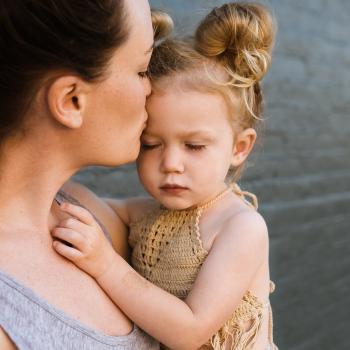Teens need to hear and see a positive view of sexuality in their faith communities. Caution against abuse and misuse of our sexuality is necessary and important. But the overwhelming message should be one of blessing, health, joy, and responsibility. Our sexuality is not made up of only our behaviors or who we are attracted to (orientation). Sexuality is part of who we are. Many faith traditions believe we are created by God, as is our sexuality. Sexuality is part of our everyday lives from birth to death. It helps us grow in relationship with other people, our self, and God. It includes our developmental bodily changes, how we express intimacy, experience sensuality, our reproductive health, sexual desires, expressions and understandings of our masculinity and femininity, and so much more.
While we may too often focus only on sexual behaviors, we almost never talk about them as pleasurable. Discussion of pleasure and non-coital behaviors is another aspect of sexuality and sexually health expression often neglected when addressing youth. Whereas, sexuality is often portrayed positively in our definitions, sexual desires or feelings are portrayed as being in need of strict control. This reflects a Western historical understanding of sexual desire as overwhelming or disordered and in need of a proper outlet. For example in one youth sexuality curriculum, youth are deterred from engaging in any sexual contact because of the "temptation" that contact may incite. The book warns that physical affection "naturally leads" from one stage to the next. Many of the small, side comments in caption bubbles read: "Be vigilant," "Be ready for battle," and "Don't play games with stuff that plays for keeps" surrounded by watermarks of men pressing barbells over their heads. The message is clear: sexual desire is overwhelmingly powerful and must be guarded against in order to maintain "moral excellence." The picture of sexuality as a good gift from God melts into a battle scene with awkward teen on one side and raging hormones, mass media, and sexual arousal on the other.
On the other hand, an open discussion on pleasurable options outside of intercourse encourages positive limit setting and recognizes the variety of behavioral ways we express our sexuality, rather than reducing it to sexual intercourse. Being open to experiences of sexual pleasure in an age appropriate way can draw youth to the conclusion that intercourse does not have to be an inevitable next step in relationships.
Concentrate on Relationship Qualities (not sexual behaviors)
One purpose of religious communities is to promote values they believe lead to right relationship with self, the Divine, and our neighbor. Yet, most teens are still very concrete in their thinking and even more so in relationships. While most scriptural stories about relationships are out-of-date and do not provide realistic models for today's youth, our faith traditions say a lot about how to treat each other -- desired qualities in a relationship. A healthy relationship is a healthy relationship, whether with family members, friends, acquaintances, work-related, or romantic. The basic values that contribute to a healthy, or what many faith traditions call a "right" relationship, are the same!
The developmental stages of adolescence tend to highlight our ability or inability to create healthy relationships. During adolescence, youth begin negotiating how best to balance multiple relationships and gain greater independence without severing ties. It is quite common to hear "relationship drama" in a youth group setting. That "drama" may be exaggerated or seem a bit naïve from the perspective of an adult youth leader and parents. Yet, most of the intense relationships -- including friendships, romantic partnerships, and distancing from parents and family -- are developmentally appropriate. As youth move through early (age 11-13), middle (14-17), and late (18 +) adolescence, they experience changes in key areas related to learning how to maintain healthy relationships.
Teens progress through developmental changes at different rates and, as they do, they become more aware and more adept at sustaining healthy relationships. By focusing on relationships and their quality rather than sexual acts, youth are given permission to think deeply about how they relate to one another, to themselves, to their faith and what role sexuality plays in those understandings. Relationship building not only requires a defined sense of self, but the ability to assess types of relationships and establish good communication. This includes thinking through the type of person one might date to when and how to end an unhealthy or even harmful relationship. Focusing on the qualities of a "right" relationship will provide youth with life-long skills and information.
Encourage Moral Development
Youth ministers and religious educators are often tasked with not only teaching the values of the faith tradition, but encouraging (sometimes enforcing) teens to adopt those beliefs. Unfortunately, the typical teaching method tends to treat youth as empty vessels we can fill up with the "right information" and then expect them to act based on that information. That is not effective education! Moral education and development research tells us we need to create opportunities that help youth critically engage moral choices and give them space to practice potential choices. (We also have influence on youth moral development as role models, but I'll get to that next.) We aren't so much giving them a toolbox as space and confidence to practice and then eventually live out their values. We are a testing space, a social lab.




